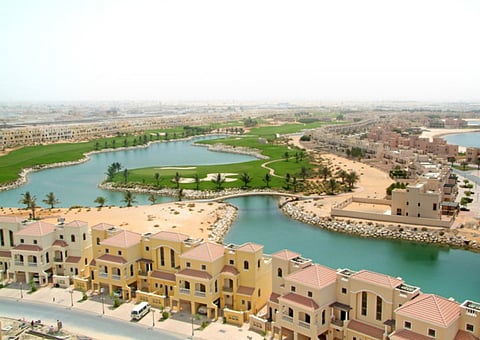The growth of Islamic REITs
What’s driving interest in this new investment vehicle?

Islamic Real Estate Investment Trusts (I-REITs) are increasingly becoming popular as an investment vehicle that is much more flexible and diversifying than direct exposure to real estate with similar yields. A number of new issuances outside the I-REITs’ birthplace of Malaysia underscores this popularity and shows that this sub-segment is getting traction.
However, for the newcomer, the question is, why does the world need Islamic REITs? Well, investment in real estate is not halal per se. In fact, REITs invest in real estate ventures, own and in some cases operate commercial properties such as apartment complexes, hospitals, office buildings, agricultural and forest land, warehouses, hotels, restaurants and shopping malls. The matter for Islamic REITs is what sort of business tenants are conducting there and how the REIT is managing its finances.
Sharia compliant
“Generally speaking, an Islamic REIT is a collective investment scheme in real estate in which the tenants operate permissible activities according to the Sharia,” explains Dr Aznan Hasan, member of the Sharia Advisory Council of Malaysia’s Central Bank and member of the Sharia Advisory Council of the Securities Commission of Malaysia.
Specifically, Sharia compliance for an Islamic REIT applies to the utilisation of the real estate, including sub-tenancies, financing of the acquisition and development of the property, as well as cash and liquidity management and property insurance schemes.
The world’s first Islamic REIT created upon such principles was the Malaysia-based Al Aqar KPJ REIT, launched in June 2006, which invested in domestic hospitals. It was followed in 2007 by Al Hadaharah Boustead REIT, also from Malaysia, with initial investment in palm oil plantation estates. Another three followed in Malaysia, namely the world’s first Islamic industrial and office REIT, Axis REIT in 2008, KLCC REIT in 2013 and Al Salam REIT.
Today, four out of a total of 18 listed REITs in Malaysia are Sharia-compliant.
Momentum has also grown outside of the Islamic REITs’ main playing ground of Southeast Asia, particularly in the GCC.
REIT in the GCC
At the end of last year, Emirates REIT, which was launched in Dubai in 2011 as the UAE’s first REIT and listed on Nasdaq Dubai in April 2014, officially became the world’s largest Islamic REIT. The trust reported total assets of $773 million (Dh2.83 billion) and a market capitalisation of $333 million at that time, overtaking now second-ranked Sabana REIT of Singapore. The total portfolio value of Emirates REIT at the end of the first quarter was $763.5 million as the value of its portfolio matured, but it was still a year-on-year gain of 10 per cent.
Meanwhile, Emirates REIT has been building up a portfolio in Abu Dhabi. Its managing firm, Equitativa, launched in February a new private REIT called The Residential REIT, a trust that comprises about 500 homes in Dubai Motor City and Al Hamra Village in Ras Al Khaimah. It is the first REIT focused on residential property only in the UAE. Equitavia also set up The Logistics REIT and The Hospitality Property Fund. The Residential REIT is set to be listed next year.
“There is significant interest in REITs across the region from institutional and private investors,” says Sylvain Vieujot, chairman of Equitativa. “Yields, particularly in the residential market, are attractive in the current environment and are expected to provide medium term upside.”
Banks get into the act
Emirates NBD, Dubai’s largest bank, listed its own Islamic REIT called ENBD REIT on Nasdaq Dubai on March 23, raising about $100 million. It was the first initial public offering (IPO) in Dubai since end of 2014.
Abu Dhabi Financial Group, an alternative investment company with assets under management of around $5 billion, is preparing to float an Islamic REIT it calls Etihad REIT by the end of the year. The REIT comprises 10 income-producing properties across four emirates in a variety of real estate subsectors, including residential, retail, warehousing and staff accommodation at a total worth close to $820 million. It would be the sixth REIT in the UAE.
Adding to that, Arcapita Investment Management, a Bahrain-based Islamic investment firm, recently acquired a portfolio of logistics assets in Dubai for about $150 million adding to its existing logistics stock in the emirate. It says it could bundle these into another new logistics REIT to be listed at one of the regional exchanges.
First REIT
While the first REIT in the GCC was actually launched in Kuwait in 2007 as Al Mahrab Tower REIT, it remained a closed and non-listed. In Bahrain, the private Inovest REIT was launched in 2009, followed by the Al Salam Asia REIT in 2014, but the first public REIT in Bahrain, Eskan Bank REIT, was only listed in January.
In Saudi Arabia, the first REIT laws were introduced in October last year. Two new REITs were listed: Riyadh REIT and Al Jazira Mawten REIT. Another one, the Jadwa REIT Alharamain Fund, saw its IPO this April.
The total number of (listed) Islamic REITs available globally is still low in relation to demand from Muslim investors, including takaful companies, which traditionally show a great interest in REIT investments. This means that despite high returns of between 6 per cent and 8 per cent annually, investors focusing on short-term investment might shy away owing to the lower liquidity of Islamic REITs as compared to the conventional REIT market. However, for investors with a longer time horizon, Islamic REITs are indeed an outstanding option to create income flows and preserve Islamic values at the same time.



